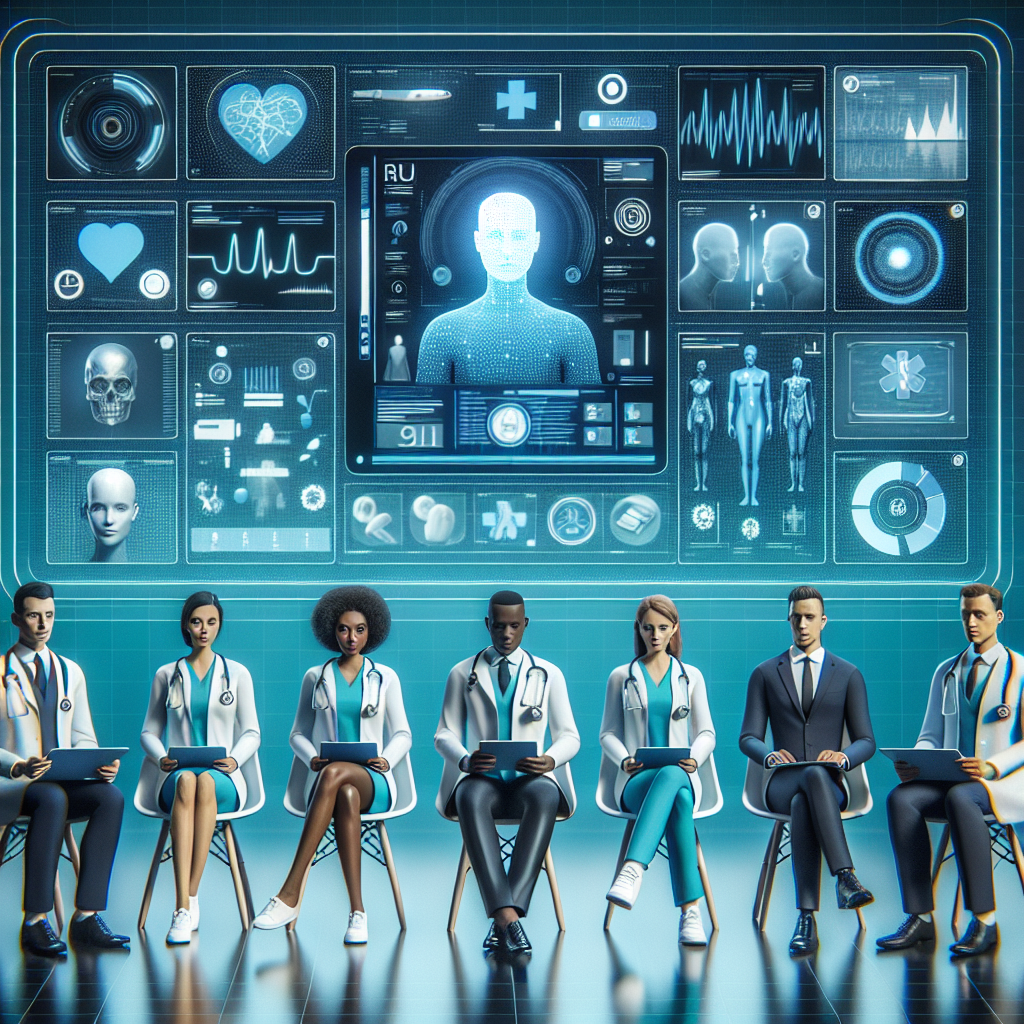Introduction
Artificial Intelligence (AI) has rapidly transformed various industries, and healthcare is no exception. AI platforms have revolutionized the field of healthcare diagnostics, offering unparalleled accuracy, efficiency, and speed in diagnosing diseases and conditions. With the help of AI, healthcare providers can make more informed decisions, leading to better patient outcomes and improved overall healthcare delivery.
The Role of AI Platforms in Healthcare Diagnostics
AI platforms have played a crucial role in transforming healthcare diagnostics in several ways:
1. Improved Accuracy: AI algorithms are capable of analyzing vast amounts of medical data with high precision and accuracy. This enables healthcare providers to make more accurate diagnoses, leading to better treatment plans and outcomes for patients.
2. Faster Diagnosis: AI platforms can process and analyze medical images, test results, and patient data much faster than human healthcare providers. This leads to quicker diagnosis and treatment, which is especially critical in emergency situations.
3. Personalized Medicine: AI platforms can analyze patients’ genetic information, medical history, and lifestyle factors to tailor treatment plans to individual needs. This personalized approach to medicine ensures that patients receive the most effective and appropriate care.
4. Predictive Analytics: AI platforms can predict the likelihood of developing certain diseases or conditions based on an individual’s medical history, genetic predisposition, and lifestyle factors. This enables healthcare providers to take proactive measures to prevent or manage these conditions before they become severe.
5. Remote Monitoring: AI platforms can monitor patients’ vital signs, symptoms, and medication adherence remotely, allowing healthcare providers to intervene quickly if any issues arise. This is particularly useful for patients with chronic conditions who require ongoing monitoring and management.
6. Cost-Effective Healthcare: By streamlining diagnostic processes, reducing errors, and optimizing treatment plans, AI platforms help healthcare providers deliver more cost-effective care. This is essential for improving healthcare access and affordability for patients.
Frequently Asked Questions (FAQs)
Q: How accurate are AI platforms in diagnosing medical conditions?
A: AI platforms have been shown to achieve high levels of accuracy in diagnosing a wide range of medical conditions, often outperforming human healthcare providers in certain tasks. However, it’s essential to note that AI algorithms are not infallible and may still make errors in some cases.
Q: Are AI platforms replacing human healthcare providers?
A: AI platforms are not meant to replace human healthcare providers but rather to augment their capabilities. While AI can assist in diagnosing diseases and conditions, healthcare providers still play a crucial role in interpreting results, communicating with patients, and developing treatment plans.
Q: How secure is patient data when using AI platforms?
A: Patient data security is a top priority for healthcare providers using AI platforms. These platforms are designed to comply with strict privacy regulations, such as HIPAA in the United States, to ensure that patient data is protected and secure.
Q: How accessible are AI platforms in healthcare diagnostics?
A: AI platforms are becoming increasingly accessible to healthcare providers of all sizes, from large hospitals to small clinics. Many AI platforms offer cloud-based solutions that can be easily integrated into existing healthcare systems, making them accessible to a wide range of healthcare providers.
Q: What are some challenges associated with implementing AI platforms in healthcare diagnostics?
A: Some challenges associated with implementing AI platforms in healthcare diagnostics include data privacy concerns, regulatory compliance issues, integration with existing systems, and the need for ongoing training and education for healthcare providers. However, these challenges can be overcome with proper planning and support.
Conclusion
AI platforms have revolutionized healthcare diagnostics, offering unparalleled accuracy, efficiency, and speed in diagnosing diseases and conditions. By harnessing the power of AI, healthcare providers can make more informed decisions, personalize treatment plans, predict disease risks, and monitor patients remotely. As AI technology continues to evolve, the role of AI platforms in healthcare diagnostics will only continue to grow, leading to improved patient outcomes and more cost-effective healthcare delivery.

